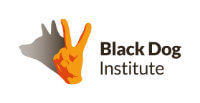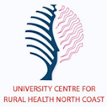The rapid rise of digital mental health programs and services has brought with it much promise to the concept of mental health treatment – particularly the promise of leveling mental healthcare disparity with the potential for faster care and more equitable access. As a health professional who recommends and integrates these services into care, how can you be sure
The rapid rise of digital mental health programs and services has brought with it much promise to the concept of mental health treatment – particularly the promise of leveling mental healthcare disparity with the potential for faster care and more equitable access.
As a health professional who recommends and integrates these services into care, how can you be sure that access to high-quality and safe healthcare is prioritised? That digital services and apps keep pace with new evidence and advances in mental health care as well as health practitioners can, and that patient data is handled safely and ethically?
Unfortunately, it is often difficult for health professionals and consumers to get clear, concrete information from providers about the security and privacy of their products. Is your client’s personal data shared or sold in ways you may not have expected? What is a provider’s known track record for protecting the personal information they collect? What evidence is there to support the model of care used? Did the provider seek sufficient input from consumers and carers in designing their service? And what systems are in place to recognise and appropriately respond to deterioration in a client’s mental state?
In this episode we take a deeper look at how Australia is leading the way in setting a standard for digital mental health safety and quality and what that means for health professionals and the future of digital mental healthcare.
Dr Tania McMahon speaks to Christopher Boyd-Skinner, Manager of Digital Mental Health at the Australian Commission on Safety and Quality in Health Care about the impact of privacy breeches in digital mental health, how the standards were developed to protect consumers against them and what assurances health professionals should expect from digital mental health services.
We also chat to Rachel Green, CEO at SANE Australia. As the first organisation to go through the Standard’s national accreditation program Rachel talks about the conversations the organisation had around consent and transparency and the new practices SANE has developed and implemented to meet the Standard of Care – like their Guided Service informed by advisory bodies and people with lived experience to help clients navigate through the service from the very start of their interaction with it.
And, we hear from Dr Anita Moss, GP obstetrician in rural Victoria and a Peer Ambassador for SANE who talks about the value of the Standards in practice. How they serve to push forward blended models of care that incorporate Australia’s key high quality digital mental health services, and where these services become widely recognised and integrated regularly into routine care in ways that ultimately get the right care to the right people at the right time and improve outcomes.
What are the Digital Mental Health Quality and Safety Standards
The Standards were first launched in 2020 following an extensive 18-month consultation process with services users, families and carers, technical experts and industry.
There are three NSQDMH Standards:
Clinical and Technical Governance Standard:
describes the clinical and technical governance, safety and quality systems and the safe environment (including privacy, transparency, security and stability of digital systems) that are required to maintain and improve the reliability, safety and quality of digital mental health care, and improve health outcomes for service users.
Partnering with Consumers Standard:
describes the systems and strategies to create a person-centred digital mental health system in which service users, and where relevant, their support people are:
- Included in shared decision-making
- Partners in their own care
- Involved in the development and design of quality digital mental health care.
Model of Care Standard:
This covers the following criteria
- Establishing the model of care
- The service provider ensures that the model of care for each digital mental health service is goal-directed and can achieve the stated outcomes of care for service users and their support people.
- Delivering the model of care
- The care delivered is consistent with the model of care and provided in partnership with service users and where relevant, their support people.
- Minimising harm In line with the model of care
- service users at risk of harm are identified and targeted strategies are used to prevent and manage harm to service users or others.
- Communicating for safety
- Service providers have systems in place for effective and coordinated communication that facilitates the delivery of safe and high-quality care for service users and their support people.
- Recognising and responding to acute deterioration
- Service providers have systems in place to recognise and respond to acute deterioration in mental state.
In November 2022 the Commission launched a national accreditation scheme to support the implementation of the NSQDMH Standards – the process is overseen by an external, Commission approved accreditation service.
Accreditation is valid for three years and participation in the scheme is currently voluntary.
You can find more information and resources about the Standards here.
Who is Christopher Boyd-Skinner?
Chris Boyd-Skinner is an Australian Government public servant whose work focuses on the intersection between digital mental health technologies, patient safety and high-quality health care delivery.
He holds a Bachelor of Nursing degree from the Australian Catholic University, Post-Graduate qualifications in Intensive Care Nursing from the University of Tasmania, and a dual Master of International Public Health and Health Management from the University of New South Wales.
Chris commenced his clinical career in 2010 at St. Vincent’s Hospital in Sydney as a Registered Nurse, taking interest in mental health and substance abuse challenges experienced by patients in the intensive care unit.
Chris has previously led a range of digital health projects for the Australian Commission on Safety and Quality in Health Care including safe use of My Health Record in EDs, the Commission’s Clinical Safety Review program and safe use of secure messaging technology.
His current work at the Commission includes implementation of the Digital Mental Health Standards, aimed at supporting a safe and high-quality digital mental health sector in Australia.
Chris’ other interests include public health, mental health policy and legislation, and patient safety in the delivery of digital health technologies and therapeutics.
Who is Rachel Green?
Rachel Green is CEO of SANE, the national organisation representing Australians impacted by complex or long term mental ill health.
Rachel is driven by her passion for pursuing big impact, community-focused interventions designed with the lived experiences of individuals and families at the forefront. She brings a wealth of experience and expertise across the mental health, not for profit and government sectors, and the fields of implementation science and public policy, and is passionate about championing the diverse voices of lived experience.
As Director of Policy, Rachel led the establishment of the National Mental Health Commission in 2011 where she joined with SANE Patron Janet Meagher AM to develop the Contributing Life Framework. She was the author of Australia’s first national consumer paid participation policy, and produced the first National Report Card on Mental Health and Suicide Prevention in 2012.
Prior to joining SANE, Rachel was CEO of a medium sized mental health and disability NGO. She also designed and led large scale community suicide prevention implementation efforts around Australia in her role at the Black Dog Institute, including LifeSpan – the systems approach to suicide prevention. Rachel has also held senior roles in mental health, business development and public health policy with the Department of Prime Minister and Cabinet, the Department of Health and Care Connect.
Rachel holds academic qualifications in human geography, political economics, leadership and management, and has held non-executive director roles with Being, the Institute of Analytics Professionals Australia, Sands Australia, Red Nose and the NSW Cycling Women’s Commission. Rachel is a graduate of the Australian Institute of Company Directors.
Rachel is driven by her passion for pursuing big impact, community-focused interventions designed with the lived experiences of individuals and families at the forefront.
Who is Dr Anita Moss?
Dr Anita Moss is a medical practitioner who has been a Peer Ambassador for SANE since 2016. She has worked as a GP obstetrician for over 20 years, and her primary motivation in her clinic is to provide high quality education and information to her clients, particularly young people, empowering them to make informed decisions related to their own healthcare. For the last five years, Anita has been regularly visiting a rural town in Northeast Victoria, where she works in an Indigenous Health Service, which she feels is one of the most meaningful and rewarding roles she has. In 2022, Anita completed the Royal Australian College of General Practitioner’s Future Leaders Program, allowing her to refine her leadership skills around values, effective communication, strategic thinking, organisation dynamics and advocacy.
Anita’s greatest joy is raising her two teenage sons who keep her busy on the Mornington Peninsula. Anita’s lived experience of her own mental health struggles and caring for a family member with complex mental illness, have inspired her to contribute to and support the vital work that SANE conducts in the community to reduce stigma, contribute to positive change and to ease the burden of suffering related to mental health.
Australian Commission on Safety and Quality in Health Care: https://www.safetyandquality.gov.au/
Digital Mental Health Safety and Quality Standards: https://www.safetyandquality.gov.au/standards/national-safety-and-quality-digital-mental-health-standards
SANE Australia: https://www.sane.org/
Mozilla Foundation – Privacy Not Included: https://foundation.mozilla.org/en/privacynotincluded/
Listen to the full conversation below. You can also access Digital Mental Health Musings on Soundcloud, Apple Podcasts, Spotify, Google Podcasts, Amazon Music, and Deezer.
Comments are closed.





